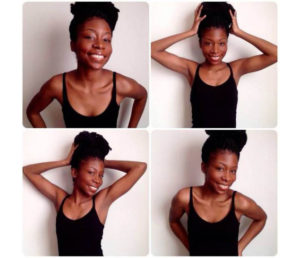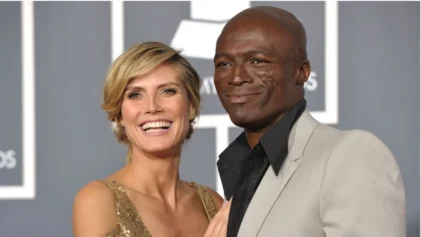
It quickly grew into a social movement for groups of like-minded — and similarly complexioned — women to get together and talk about the things that make them feel marginalized, and then do something about it. Her “Dark Skin, Red Lip” project, which encouraged Black women to rock whatever shade of red lipstick made them feel gorgeous, became a social phenomenon of empowerment through beauty.
Washington died April 8 of an apparent suicide. She was just 22.
According to friends, Washington was suffering from depression and mental illness brought on by the death of her mother in 2013. Her fans and followers are devastated by the loss of someone who inspired them so much. And many in the African-American community are taking this tragedy as an opportunity to talk about the stigma of mental illness, and the silence that conceals it.
“When your community tells you that you’re better off praying than seeking the advice of medical professionals and medication, you feel shame when you feel your mind is breaking,” writes blogger Christelyn Karazin. “There is no safe place. To admit to any mental frailty is to invite scorn and mockery, accusations of acting white.
“Because only white people suffer from depression. Only white people commit suicide.
“Black women are strong.
“Black women are not human.
“And this is a LIE.”
Washington was also a passionate advocate for urban agriculture and spoke out about the racial bias in the organic food movement. “If we’re talking about sustainable agriculture, and I look in the audience and don’t see people that look like me or people of color, then I have to step back — and a lot of people are starting to step back — and say, ‘Wait a minute, there’s a group of people missing.’ So now is the time to really stir up the interest that Black people should have in urban agriculture and the impact that we have as consumers,” she said in a 2010 interview with the Indypendent.
It seemed no matter who she spoke to — even if she was the one reaching out for help — Washington was able to inspire something in them.
“I wanna pout for a few minutes. I wanna bubble-snot cry. I wish someone had told Karyn Washington that she didn’t have to be strong. She didn’t have to hold the world’s glaring eyes on her shoulders. That asking for help was OK. No matter how you ask for it, it’s OK,” writes blogger Ty Alexander in an emotional post that recalls email exchanges she had with Washington before, during, and after her mother’s death, an experience Alexander had in common.
“People say all the time, You’re so strong! That’s so far from the truth. I AM WEAK!!! I think that’s what has gotten me through. I don’t judge myself for bursting into tears in the middle of a meeting. I don’t judge myself for eating the entire pint of butter pecan ice cream (although I just signed up for Crunch)! And I cannot judge myself for not being able to save Karyn.”
Washington’s legacy will remain her inspiring work and her words of hope for others that will continue to live on online. Messages such as this one, which she shared last year while watching her mother deteriorate from cancer:
“I am empowered by other strong women and girls. Even by those who don’t necessarily know they are inspiring. Women who are doing what they can to uplift others around them and make a difference in their community motivate me to do the same. I think it is so important for women no matter what complexion, race, or religious background to be united in making sure our voices are heard — that we are being leaders and positive role models to the younger generation.”
Source: cosmopolitan.com


